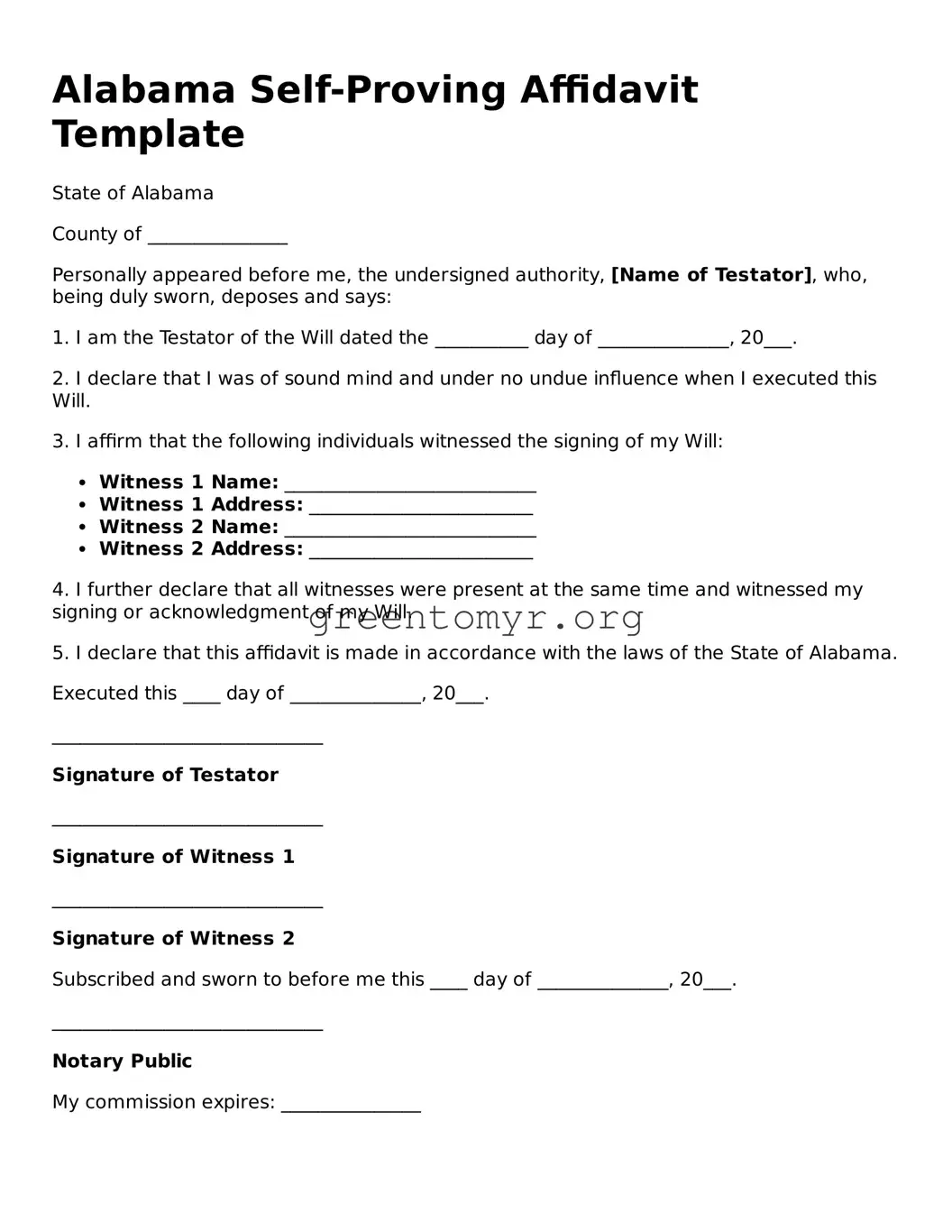Alabama Self-Proving Affidavit Template
State of Alabama
County of _______________
Personally appeared before me, the undersigned authority, [Name of Testator], who, being duly sworn, deposes and says:
1. I am the Testator of the Will dated the __________ day of ______________, 20___.
2. I declare that I was of sound mind and under no undue influence when I executed this Will.
3. I affirm that the following individuals witnessed the signing of my Will:
- Witness 1 Name: ___________________________
- Witness 1 Address: ________________________
- Witness 2 Name: ___________________________
- Witness 2 Address: ________________________
4. I further declare that all witnesses were present at the same time and witnessed my signing or acknowledgment of my Will.
5. I declare that this affidavit is made in accordance with the laws of the State of Alabama.
Executed this ____ day of ______________, 20___.
_____________________________
Signature of Testator
_____________________________
Signature of Witness 1
_____________________________
Signature of Witness 2
Subscribed and sworn to before me this ____ day of ______________, 20___.
_____________________________
Notary Public
My commission expires: _______________
